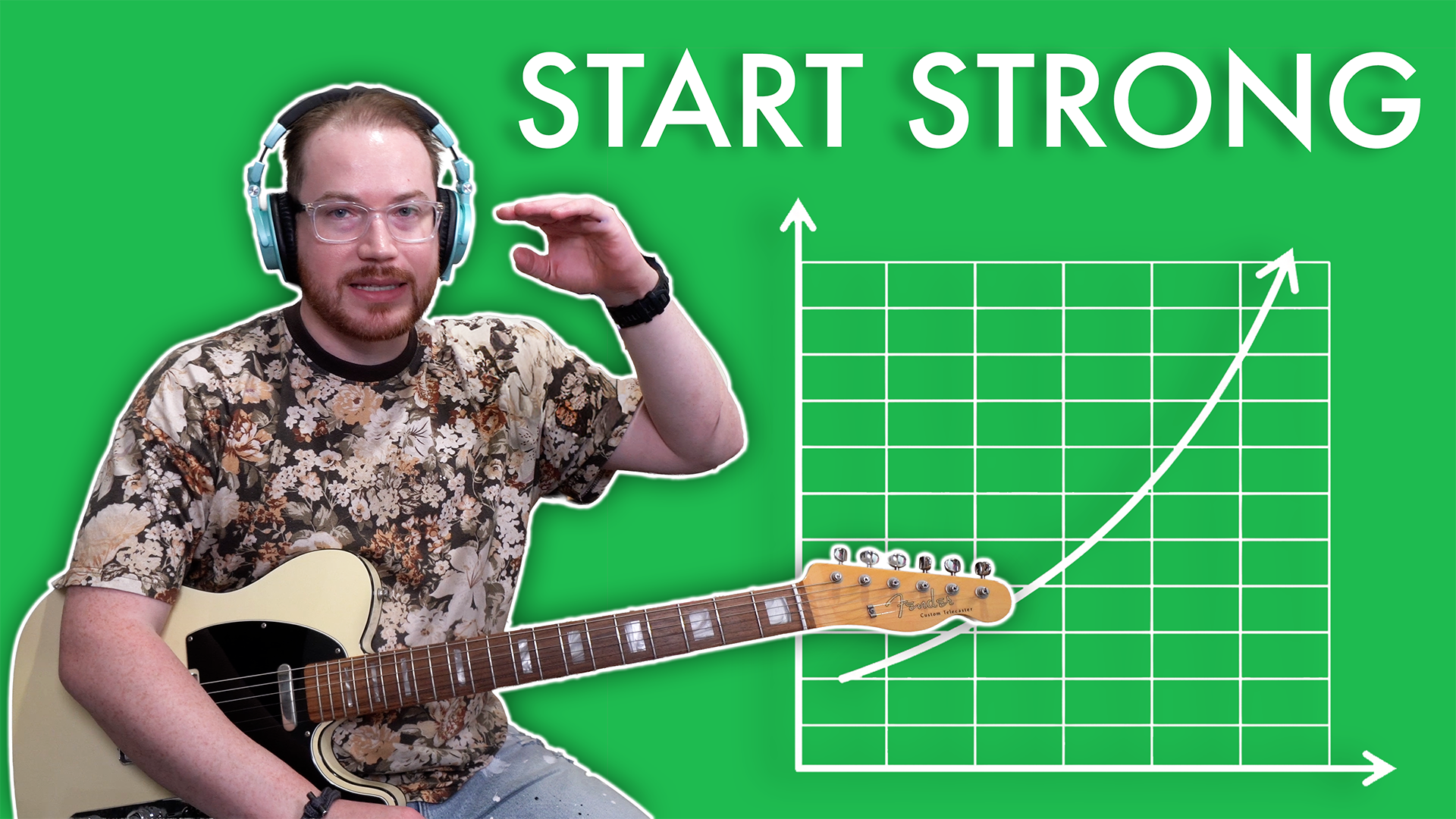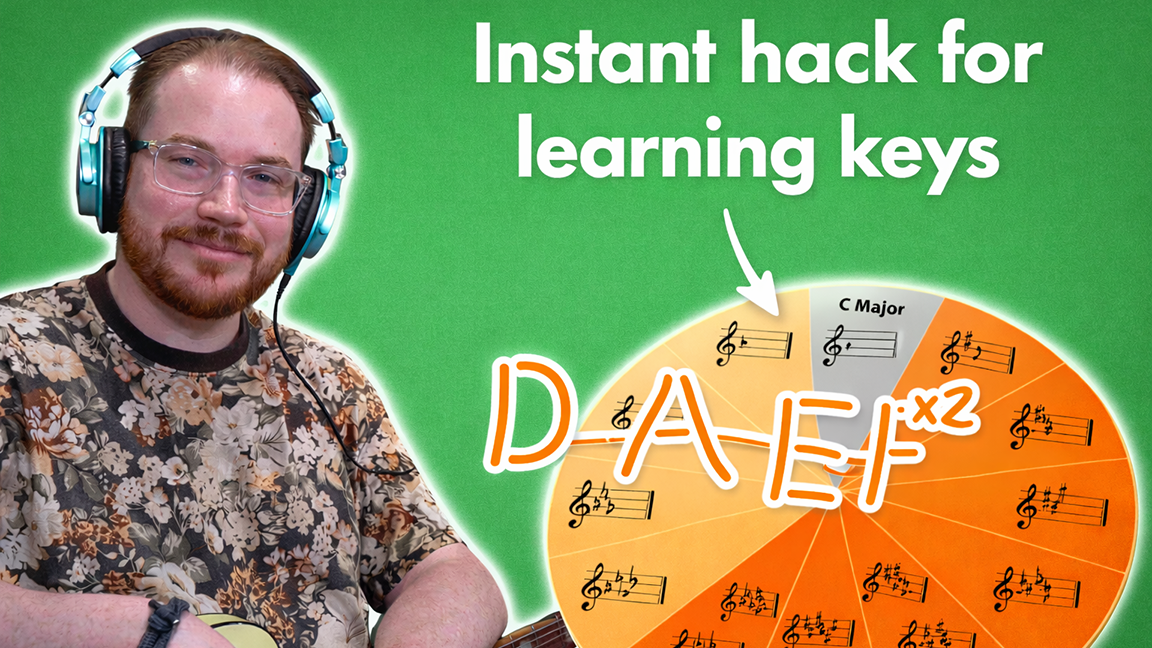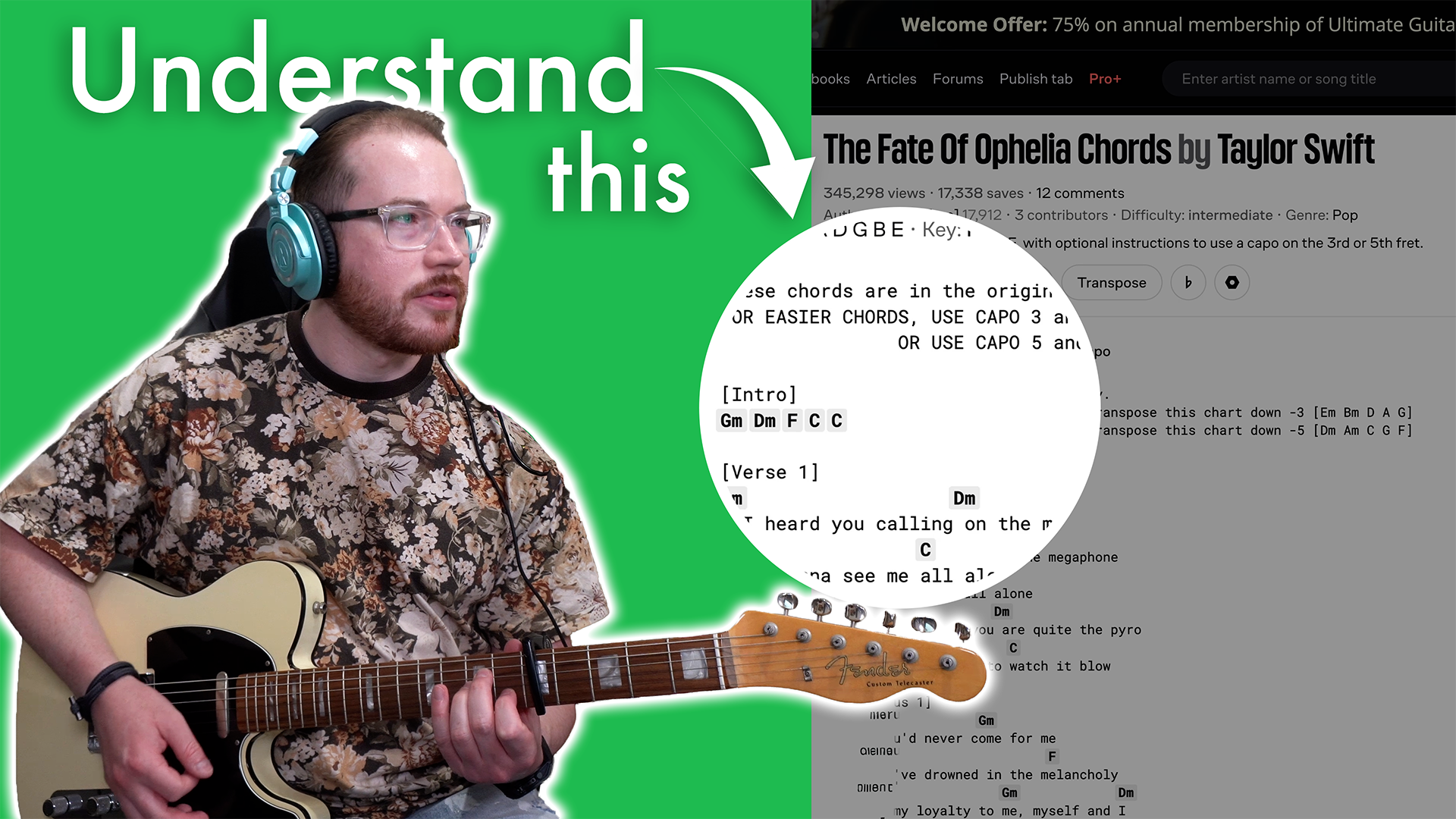The most important musical concept for learning guitar
Context is the only thing that matters
The most important concept to understand when you’re learning music is the idea of context. This doesn’t just apply if you are learning how to play the guitar - this is more fundamental than that.
Context is the only thing that matters when you’re learning music. Period.
There are 12 possible notes we can play on the guitar. Every one of those notes can suggest a different sound or feeling depending on what other notes we hear with it. Or what other notes we hear first.
Think of it like the alphabet. There are only 26 letters in the alphabet but there are many more than 26 words. We put letters in different contexts by combining them with other letters. This allows us to communicate a much wider range of ideas.
A letter doesn’t really communicate anything on its own. It’s not until we start combining different letters together that we can begin to understand what is being said. In the same way, a single musical note doesn’t really mean anything when it’s played on its own. It needs to be played in the context of other notes for us to begin to understand what is being communicated.
Does it sound happy? Is the melody sad? Mysterious? A single note can suggest all these things depending on the context we choose to put it in.
You can’t avoid learning music theory
The only thing that matters in music is context. Learning music theory is the process of understanding how to intentionally apply context.
The thing about context is that it exists whether you like it or not. And, because music theory is literally just understanding context, you actually can’t escape it.
Guitarists who say that they have no interest in music theory are kidding themselves. There’s no way you can learn music without having a context.
You can either:
Learn how music theory works and have an accurate and versatile understanding of context in all situations. Or,
Come up with your own reasons as to why something works which will most likely end up being one-dimensional and limited to a very specific application.
The thing about coming up with your own music theory is that it’s only going to work within a specific little fence that you've set up around yourself because the context that you're playing in is dependent on your understanding of the environment.
Instead, what we want to do as we are learning music is make sure that we have a solid foundation so that no matter what we learn, our understanding continues to strengthen itself. What happens when we do it this way is a new piece of information just slots right in. Our understanding of the new piece of information reinforces our understanding of other pieces of information because we realise it’s connected to this other thing and works the same way as something else.
Here’s a good idea to keep in mind:
Whenever you try to learn something new in music, ask yourself, what is the context of this information?
If you learn something and it doesn't have a context, it's not helpful information.
It either means that you're learning something in a really silly way or that you don't understand the concept thoroughly enough. You’re probably missing a crucial piece of information.
Not learning music theory correctly is like learning a few words, then looking at those words and saying that the letters used in these words must be the entire alphabet. But it’s not the entire alphabet. There are letters in the alphabet you haven’t used yet. If you ignore these you’re really going to shoot yourself in the foot because now you don’t have the context to be able to use other words. Without realising it, you’ve created a situation where you’ve limited your ability to express yourself.



